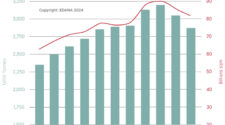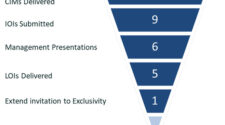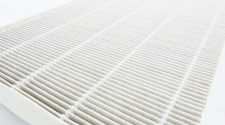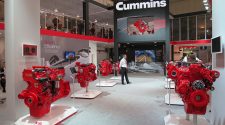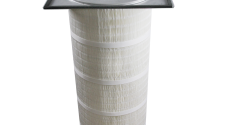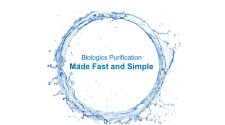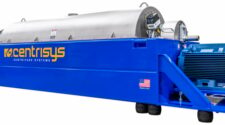The filtration industry is making a major effort to reduce true cost through its sustainability efforts. Much of the effort has been defensive and reactive. The focus is on how bad behavior is going to be reduced. The positive story needs to be told.
Two proactive approaches should be pursued:
- Life quality improvement due to filtration
- Carbon negative technologies made possible by filters
Life quality improvement
Environmental, social, and corporate governance (ESG) is a theoretical approach to evaluating the extent to which a corporation works on behalf of social goals that will supposedly go beyond the role of a corporation to maximize profits on behalf of the corporation’s shareholders. The initiative launched by the United Nations now represents more than US$30 trillion in assets under management. Capital totaling more than US$18 billion has flowed into ESG-linked products.
Much of this activity involves the filtration industry or its customers.
One of the goals is to increase corporate value perception among average stockholders and not just an elite group. In this regard, personal life quality metrics is paramount.
- Many companies make products which improve life quality but not longevity. They may rate their ESG status based on what they believe is best for individuals rather than what the individuals necessarily want.
- Decisions are made in democratic countries based on what voters and consumers want rather than what is best for them.
- A new metric is needed to help voters and consumers predict the government or corporate actions which will best achieve their desires.
- If people are going to be persuaded to alter their desires, it is necessary to help them predict the long-term consequences
- A novel metric entitled “Quality Enhanced Life Days (QELD)” along with tribal values and discounted future values can greatly assist individuals and corporations to chart the best course. (1)
Many countries are concerned with both drought and climate change. They can install desalination systems which provide them with high-quality water but increase CO2 emissions substantially. A beautiful lawn improves life quality for the owner and neighbors but may be detrimental 50 years from now for coastal citizens in distant countries.
McIlvaine has been contracted by Fortune 500 companies to utilize the life quality metric to help them with decision making or promotion. One study dealt with single-use versus reusable cleanroom and hospital garments. Comfort, safety, water pollution and greenhouse gases vary between the two options. The life quality/tribal value/discounted future approach provided guidance.
Several companies contracted with McIlvaine to analyze the value of multi metals analyzers. Today regulators have to be content with one weight measurement for all the metals. However, some metals are thousands of times more harmful than others. Some, such as mercury, can be avoided by not eating large fish. Others cannot be avoided. Each can be rated based on life quality impacts. Life quality is the major issue in regional haze or the deterioration of the view for residents who can see wind turbines on the horizon.
Religions, cults, abortion rights, and eating habits are all driven by personal life quality metrics. Solutions to climate change improve life quality in the future but are discounted in the present by poor families hoping for electricity and worried about the next meal.
Filtration companies can take credit for improving life quality even if there is an environmental trade off. A company which makes oil filters for racing cars can be improving life quality for thousands of racing car fans. A swimming pool filter improves life quality for some. The pool is a life quality choice for many despite minor environmental negatives.
Carbon negative technologies
Filtration media in the form of plastic waste is highly detrimental to the environment if it is
allowed to pollute seas. Plastic filter media, which is consumed in a waste to energy plant, is a source of 20,000 BTU per lb fuel. If the plant adds carbon capture and sequestration, the plastic becomes carbon neutral.
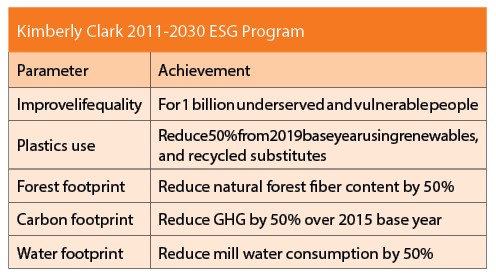
If a natural fiber is combusted and the CO2 sequestered it becomes carbon negative. The UK believes that bioenergy with carbon capture and sequestration (BECCS) is the carbon negative option which actually reduces CO2 and eliminates worries about a tipping point.
The UK has a huge 4000 MW coal plant which has been converted to burn wood chips from the U.S. CO2 will be sequestered in the North Sea. The operator, Drax, is planning to build similar plants in the U.S. and other countries.
Filtration media suppliers can therefore be carbon neutral or with natural fibers, carbon negative. In both cases it is a matter of promoting waste to energy with carbon sequestration.
Kimberly Clark can be used as an example of a filtration media supplier which can pursue both proactive approaches to improve the ESG image.
In terms of major Kimberly Clark initiatives, one is positive and four are reductions of negative activities.
Kimberly Clark household products from tissues to towels improve life quality for nearly 1 billion people. The primary ingredient is wood pulp. If Kleenex ends up in a waste-to-energy plant with carbon capture and sequestration (WTE BECCS), Kimberly Clark has reduced carbon emissions in the atmosphere. So this is positive rather than a reduced negative.
Use Kleenex to reduce greenhouse gases
Kimberly Clark air filter products improve life quality. Mask media has saved many lives in the recent pandemic. High efficiency, electret-charged, bicomponent spunbond air media offers filtration efficiencies from MERV 7 to MERV 15 for pleat, pocket, and mini-pleat filters. Kimberly Clark also provides critical solutions for car cabin and air purifier applications. With WTE CCS at worst, these products are carbon neutral.
Kimberly Clark is a small example of the contribution of the filtration industry to improve life quality and sequester CO2 from biomass. BECCS uses many filters. The cost effectiveness is highly dependent on filtration effectiveness. So, the whole carbon negative program depends to no small extent on the filtration industry.
(1)Sustainability Universal Rating System published by the McIlvaine Company



